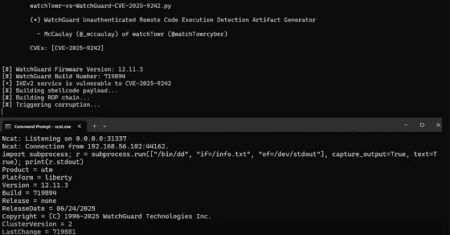X-Content-Type-Options Header Missing
- Risk:
Low
- Type:
- Passive
- CWE:
- CWE-693
- Summary
The Anti-MIME-Sniffing header X-Content-Type-Options was not set to ’nosniff’. This allows older versions of Internet Explorer and Chrome to perform MIME-sniffing on the response body, potentially causing the response body to be interpreted and displayed as a content type other than the declared content type. Current (early 2014) and legacy versions of Firefox will use the declared content type (if one is set), rather than performing MIME-sniffing.
- Solution
Ensure that the application/web server sets the Content-Type header appropriately, and that it sets the X-Content-Type-Options header to 'nosniff' for all web pages. If possible, ensure that the end user uses a standards-compliant and modern web browser that does not perform MIME-sniffing at all, or that can be directed by the web application/web server to not perform MIME-sniffing.
- Other info
- This issue still applies to error type pages (401, 403, 500, etc.) as those pages are often still affected by injection issues, in which case there is still concern for browsers sniffing pages away from their actual content type. At "High" threshold this scan rule will not alert on client or server error responses.
- References
Oracle silently fixes zero-day exploit leaked by ShinyHunters
Silver Fox Expands Winos 4.0 Attacks to Japan and Malaysia via HoldingHands RAT
New .NET CAPI Backdoor Targets Russian Auto and E-Commerce Firms via Phishing ZIPs
New FileFix attack uses cache smuggling to evade security software
North Korean Hackers Use EtherHiding to Hide Malware Inside Blockchain Smart Contracts
Another remotely exploitable Oracle EBS vulnerability requires your attention (CVE-2025-61884)
New Android Pixnapping attack steals MFA codes pixel-by-pixel
Researchers Uncover WatchGuard VPN Bug That Could Let Attackers Take Over Devices
Google ads for fake Homebrew, LogMeIn sites push infostealers
CVE-2025-59230 Microsoft Windows Improper Access Control Vulnerability
CVE-2025-6264 Rapid7 Velociraptor Incorrect Default Permissions Vulnerability
CVE-2016-7836 SKYSEA Client View Improper Authentication Vulnerability
CVE-2017-3881 Cisco IOS and IOS XE Remote Code Execution Vulnerability
CVE-2021-43226 Microsoft Windows Privilege Escalation Vulnerability
CVE-2025-47827 IGEL OS Use of a Key Past its Expiration Date Vulnerability
CVE-2007-0671 Microsoft Office Excel Remote Code Execution Vulnerability
CVE-2010-3765 Mozilla Multiple Products Remote Code Execution Vulnerability
CVE-2018-7600 Drupal Core Remote Code Execution Vulnerability
HighOut of Band XSS
InformationalCookie Slack Detector
InformationalGraphQL Endpoint Supports Introspection
InformationalRetrieved from Cache
Free online web security scanner









